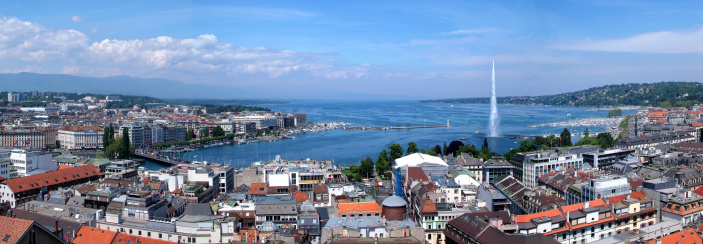
Europe
As a continent, the economy of Europe is currently the largest on Earth and it is the richest region as measured by assets under management with over $32.7 trillion compared to North America’s $27.1 trillion. Europe remains the wealthiest region. Its $37.1 trillion in assets under management represented one-third of the world’s wealth. It was one of several regions where wealth surpassed its pre-crisis year-end peak. As with other continents, Europe has a large variation of wealth among its countries. The richer states tend to be in the West; some of the Eastern economies are still emerging from the collapse of the Soviet Union and Yugoslavia. The European Union, an intergovernmental body composed of 27 European states, comprises the largest single economic area in the world. 16 EU countries share the Euro as a common currency. Five European countries rank in the top ten of the world’s largest national economies in GDP (PPP). This includes: Germany (5), the UK (6), Russia (7), France (8), and Italy (10). There is huge disparity between many European countries in terms of their income. The richest in terms of GDP per capita is Monaco with its US$172,676 per capita and the poorest is Moldova with its GDP per capita of US$1,631. Monaco is the richest country in terms of GDP per capita in the world according to the World Bank report.

London, United Kingdom
London generates approximately 20 per cent of the UK’s GDP (or $446 billion); while the economy of the London metropolitan area – the largest in Europe – generates approximately 30 per cent of the UK’s GDP (or an estimated $669 billion). London is one of the pre-eminent financial centres of the world and vies with New York City as the most important location for international finance. London’s largest industry is finance, and its financial exports make it a large contributor to the UK’s balance of payments. Around 325,000 people are employed in financial services in London. London has over 480 overseas banks, more than any other city in the world. Over 85% (3.2 million) of the employed population of greater London works in the services industries. The City of London is home to the Bank of England, London Stock Exchange, and Lloyd’s of London insurance market. Over half of the UK’s top 100 listed companies (the FTSE 100) and over 100 of Europe’s 500 largest companies have their headquarters in central London. Over 70 per cent of the FTSE 100 are within London’s metropolitan area, and 75 per cent of Fortune 500 companies have offices in London.

Paris, France
The Paris Region is France’s premier centre of economic activity, and with a GDP of €607 billion (US$845 billion), it is not only the wealthiest area of France, but has one of the highest GDPs in the world, after Tokyo, New York, Los Angeles, Seoul and London making it an engine of the global economy. Were it a country, it would rank as the seventeenth-largest economy in the world, larger than the Turkish and Dutch economies and almost as large as Indonesia’s. While its population accounts for 18.8 percent of the total population of metropolitan France, its GDP accounts for 31.0 per cent of metropolitan France’s GDP. Wealth is heavily concentrated in the western suburbs of Paris, notably Neuilly-sur-Seine, one of the wealthiest areas of France. This mirrors a sharp political divide, with political conservatism being much more common towards the western edge, whilst the political spectrum lies more to the left in the east. The Parisian economy has been gradually shifting towards high-value-added service industries (finance, IT services, etc.) and high-tech manufacturing (electronics, optics, aerospace, etc.). However, in the European Green City Index, Paris was still listed as the second most”green” large city in Europe, after Berlin. While the Paris economy is largely dominated by services, it remains an important manufacturing powerhouse of Europe, especially in industrial sectors such as automobiles, aeronautics, and electronics. The Paris Region hosts the headquarters of 30 of the Fortune Global 500 companies.
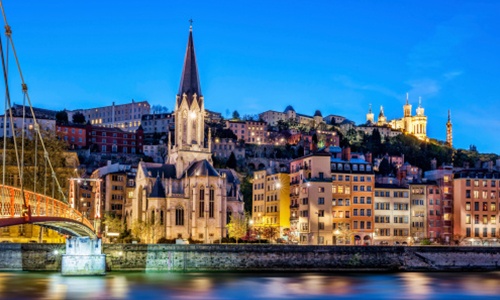
Lyon, France
The GDP of Lyon is 62 billion euro, and the city is the second richest city after Paris. Lyon and its region Rhône-Alpes represent one of the most important economies in Europe and can be compared to Philadelphia, Mumbai or Athens concerning its international position. Lyon is the 14th favorite city in the European Union concerning the creation of companies and investments. High-tech industries like biotechnology, software development, game design, and internet services are also growing. Other important sectors include medical research and technology, non-profit institutions, and universities. The city is the headquarters of many companies like Euronews; Lyon Airports; BioMérieux; Sanofi Pasteur; LCL S.A.; Cegid Group; Boiron; Infogrames; Groupe SEB; Renault Trucks; Irisbus; LVL Medical, GL Events; Compagnie Nationale du Rhône; and intergovernmental agencies IARC. The worldwide headquarters of Interpol is located there. The district of Confluence, in the south of the historic centre, is a new pole of economical and cultural development.

Berlin, Germany
The nominal GDP of the city state Berlin totaled €90.1 (~$117) billion. Berlin’s economy is dominated by the service sector, with around 80% of all companies doing business in services. Fast-growing economic sectors in Berlin include communications, life sciences, and transportation particularly services that use information and communication technologies, as well as media and music, advertising and design, biotechnology, environmental services, and medical engineering. The Science and Business Park of Berlin-Adlershof is among the 15 largest technology parks worldwide. Research and development have high economic significance for the city, and the Berlin-Brandenburg region ranks among the top-three innovative regions in the EU. Many German and international companies have business or service centers in the city. For years Berlin is recognized as a centre of business startup in Europe. Among the 20 largest employers in Berlin are the Deutsche Bahn, the hospital provider, Charité, the local public transport provider, BVG, and the service provider, Dussmann and the Piepenbrock Group. Daimler manufactures cars, and BMW builds motorcycles in Berlin. Bayer Health Care and Berlin Chemie are major pharmaceutical companies headquartered in the city. The second largest German airline Air Berlin is also headquartered in Berlin. Siemens, a Fortune Global 500 company and one of the 30 German DAX companies, is headquartered in Berlin. The national railway operator, Deutsche Bahn, has its headquarters in Berlin as well. Berlin has a cluster of rail technology companies and is headquarter or site to Bombardier Transportation, Siemens Mobility, Stadler Rail and Thales Transportation.

Munich, Germany
Munich has the strongest economy of any German city and the lowest unemployment rate of any German city. The city is also the economic centre of southern Germany. Munich is considered a global city and holds the headquarters of Siemens AG (electronics), BMW (car), MAN AG (truck manufacturer, engineering), Linde (gases), Allianz (insurance), Munich Re (re-insurance), and Rohde & Schwarz (electronics). The breakdown by cities proper (not metropolitan areas) of Global 500 cities listed Munich in 8th position. Munich is a centre for biotechnology, software and other service industries. Munich is also the home of the headquarters of many other large companies such as the aircraft engine manufacturer MTU Aero Engines, the injection molding machine manufacturer Krauss-Maffei, the camera and lighting manufacturer Arri, the semiconductor firm Infineon Technologies (headquartered in the suburban town of Neubiberg), lighting giant Osram, as well as the German or European headquarters of many foreign companies such as McDonald’s and Microsoft. Munich has significance as a financial centre (second only to Frankfurt), being home of HypoVereinsbank and the Bayerische Landesbank. It outranks Frankfurt though as home of insurance companies.

Brussels, Belgium
Serving as the centre of administration for Europe, Brussels’ economy is largely service-oriented. It is dominated by regional and world headquarters of multinationals, by European institutions, by various administrations, and by related services, though it does have a number of notable craft industries, such as the Cantillon Brewery and the Lambic brewery.

Madrid, Spain
Madrid is a major centre for international business and commerce. It is one of Europe’s largest financial centres and the largest in Spain. Madrid has become the 23rd richest city in the world and third richest in Europe in terms of absolute GDP; behind the considerably larger cities of Paris and London and ahead of Moscow and Barcelona. Additionally in terms of GDP per capita, the Madrid region is the richest in Spain and one of the richest in Europe. Madrid is a global financial leader, rising to the top five Centres of Commerce in Europe. Madrid continues its upward trajectory as a key European city, rising to number 11 globally and to the number 5 spot in Europe. Madrid’s stable GDP, exchange rate and strong bond market, coupled with a high standard of living, place this city in the company of Europe’s most prominent cities: London, Paris, Frankfurt and Amsterdam.

Barcelona, Spain
The Barcelona metropolitan area comprises over 66% of the people in one of the richest regions in Europe – Catalonia, with a GDP per capita amounting to 16% more than the EU average. The Barcelona metropolitan area had a GDP amounting to 44% more than the EU average making it the 4th economically powerful city by GDP in the European Union and 35th in the world. Furthermore, Barcelona is Europe’s fourth best business city and fastest improving European city. Barcelona is the 14th most”livable city” in the world according to lifestyle magazine Monocle. Barcelona has a long-standing mercantile tradition. Less well known is that the region was one of the earliest to begin industrialization in continental Europe, beginning with textile-related works. Since then, manufacturing has played a large role in its history.

Rome, Italy
Being the capital city of Italy, Rome hosts all the principal institutions of the nation, like the Presidency of the Republic, the government (and its single Ministeri), the Parliament, the main judicial Courts, and the diplomatic representatives of all the countries for the states of Italy and the Vatican City (curiously, Rome also hosts, in the Italian part of its territory, the Embassy of Italy for the Vatican City, a unique case of an Embassy within the boundaries of its own country). Many international institutions are located in Rome, notably cultural and scientific ones – such as the American Institute, the British School, the French Academy, the Scandinavian Institutes, the German Archaeological Institute – for the honour of scholarship in the Eternal City, and Specialized Agencies of the United Nations, such as the FAO. Rome, also hosts major international and worldwide political and cultural organisations, such as the International Fund for Agricultural Development (IFAD), World Food Programme (WFP), the NATO Defence College and ICCROM, the International Center for the Study of the Preservation and Restoration of Cultural Property. Although the economy of Rome is characterized by the absence of heavy industry and it is largely dominated by services, high-technology companies (IT, aerospace, defence, telecommunications), research, construction and commercial activities (especially banking), and the huge development of tourism are very dynamic and extremely important to its economy. Rome’s international airport, Fiumicino, is the largest in Italy, and the city hosts the head offices of the vast majority of the major Italian companies, as well as the headquarters of three of the world’s 100 largest companies: Enel, Eni, and Telecom Italia.

Milan, Italy
While Rome is Italy’s political capital, Milan is the country’s economic and financial heart. With GDP estimated at €132.5 billion, the province of Milan generates approximately 9% of the national GDP; while the economy of the Lombardy region generates approximately 20% of the Italy’s GDP. The province of Milan is home to about 45% of businesses in the Lombardy region and more than 8 percent of all businesses in Italy, including three Fortune 500 companies. Milan is home to a large number of media and advertising agencies, national newspapers and telecommunication companies, including both the public service broadcaster RAI and private television companies like Mediaset, Telecom Italia Media and Sky Italia. In addition, it has also seen a rapid increase in internet companies with both domestic and international companies such as Altavista, Google, Lycos, Virgilio and Yahoo! establishing their Italian operations in the city. Milan is a major world fashion centre, where the sector can count on 12,000 companies, 800 show rooms, and 6,000 sales outlets (with brands such as Armani, Versace and Valentino), while four weeks a year are dedicated to top shows and other fashion events. The city is also an important manufacturing centre, especially for the automotive industry, with companies such as Alfa Romeo and Pirelli having a significant presence in the city. Other important products made in Milan include chemicals, machinery, pharmaceuticals and plastics.

Vienna, Austria
The Economist Intelligence Unit ranked the city first (in a tie with Vancouver, Canada) for the world’s most livable cities. For four consecutive years, the human-resource-consulting firm Mercer ranked Vienna first in its annual”Quality of Living” survey of hundreds of cities around the world. The city was ranked 1st globally for its culture of innovation, and fifth globally in the Innovation Cities Index, which analyzed 162 indicators in covering three areas: culture, infrastructure and markets. Vienna regularly hosts urban planning conferences and is often used as a case study by urban planners. Each year Vienna has been the world’s number one destination for international congresses and conventions. It attracts about five million tourists a year.
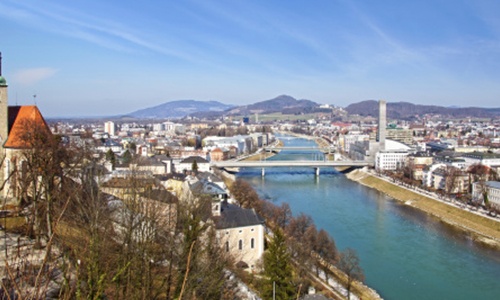
Salzburg, Austria
Salzburg is the most economically active federal state after Vienna which, being the federal capital, enjoys a special status and takes up a leading position in value creation, tax revenues, employment and low unemployment – among the Austrian federal states but also internationally. Salzburg acts as the economic hub of Europe and is ranked among the most economically dynamic regions in Europe. Furthermore, the federal state capital is Austria’s trade fair and automobile metropolis. For example the Salzburger Porsche Holding was Austria’s most profitable enterprise with a recent turnover of just under 13 billion Euro. Most car importers have their registered office in Salzburg. Thousands of jobs are created by companies like Porsche, Mercedes, BMW, Suzuki and Jaguar. Europe’s point of intersection is the ideal location for the internationally operating transport and logistics companies which have settled here. For more than 35 years Salzburg’s exhibition centre has been the most successful trade fair centre in Austria. As an investment location Land Salzburg holds a constantly high position in the European ranking. Assessments carried out by international institutions have repeatedly confirmed Salzburg’s quality as a business location. Salzburg’s economic performance amounts to approximately 20 billion Euro a year. The strong economic performance has a direct effect on employment statistics. Salzburg and Upper Austria have the lowest unemployment rates of all Austrian federal states, which are also much lower than the national average.
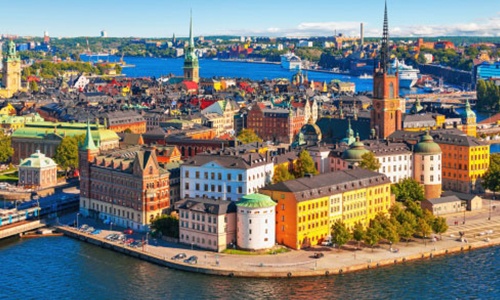
Stockholm, Sweden
The vast majority of Stockholm residents work in the service industry, which accounts for roughly 85% of jobs in Stockholm. The almost total absence of heavy industry (and fossil fuel power plants) makes Stockholm one of the world’s cleanest metropolises. The last decade has seen a significant number of jobs created in high technology companies. Large employers include IBM, Ericsson, and Electrolux. A major IT centre is located in Kista, in northern Stockholm. Stockholm is Sweden’s financial centre. Major Swedish banks, such as Nordea, Swedbank, Handelsbanken, and Skandinaviska Enskilda Banken, are headquartered in Stockholm, as are the major insurance companies Skandia, Folksam and Trygg-Hansa. Additionally, about 45% of Swedish companies with more than 200 employees are headquartered in Stockholm. Famous clothes retailer H&M is also headquartered in the city. In recent years, tourism has played an important part in the city’s economy. Stockholm County is ranked as the 10th largest visitor destination in Europe, with over 10 million commercial overnight stays per year.
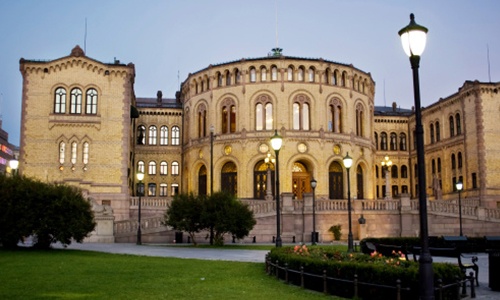
Oslo, Norway
Oslo is an important centre of maritime knowledge in Europe and is home to approximately 1980 companies and 8,500 employees within the maritime sector, some of which are the world’s largest shipping companies, shipbrokers, and insurance brokers. Det Norske Veritas, headquartered at Høvik outside Oslo, is one of the three major maritime classification societies in the world, with 16.5% of the world fleet to class in its register. The city’s port is the largest general cargo port in the country and its leading passenger gateway. Close to 6,000 ships dock at the Port of Oslo annually with a total of 6 million tonnes of cargo and over five million passengers. The gross domestic product of Oslo amounts to 17% of the national GDP. The metropolitan area, bar Moss and Drammen, contributed 25% of the national GDP and is responsible for more than one quarter of tax revenues. In comparison, total tax revenues from the oil and gas industry on the Norwegian Continental Shelf amounted to about 16%. Oslo is one of the most expensive cities in the world.
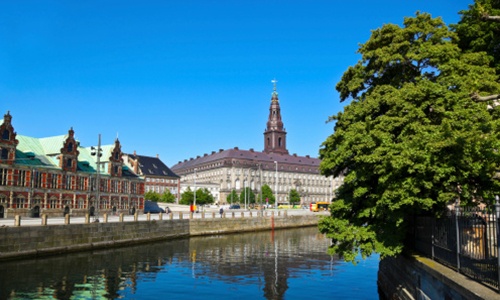
Copenhagen, Denmark
Copenhagen is not only the economic and financial centre of Denmark but is a major business centre for the entire Scandinavian-Baltic region. Statistics show that of the 350,000 people working in Copenhagen, the vast majority are employed in the service sector, especially transport and communications, trade, and finance, while less than 10,000 work in the manufacturing industries. The public sector workforce is around 110,000, including education and healthcare. Copenhagen was third in the ranking of the richest cities in the world in terms of gross earnings. Copenhagen is home to a number of international companies including A.P. Møller-Mærsk, Novo Nordisk, Carlsberg and Novozymes. The city also has successful business clusters in several innovative sectors including information technology, biotechnology, pharmaceuticals and clean technology. Copenhagen has a service oriented economy. Life science is a key sector with extensive research and development activities. In collaboration with Sweden, Medicon Valley is being developed as a central sector of interest across the entire Øresund Region. Major Danish biotech companies like Novo Nordisk and Lundbeck, both of which are among the 50 largest pharmaceutical and biotech companies in the world, are located in the greater Copenhagen area. Shipping is also an import sector with Maersk, the world’s largest shipping company, having their world headquarters in Copenhagen.
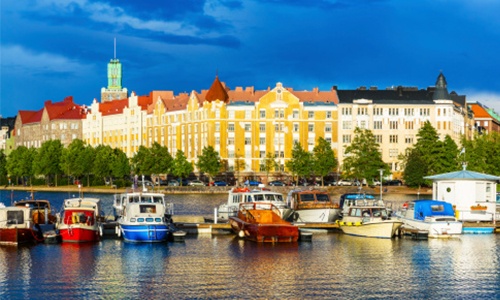
Helsinki, Finland
The Helsinki metropolitan area generates approximately one third of Finland’s GDP. GDP per capita is roughly 1.3 times the national average. The metropolitan area’s gross value added per capita is 200% of the mean of 27 European metropolitan areas, equaling those of Stockholm or Paris. The gross value added annual growth has been around 4%. 83 of the 100 largest Finnish companies are headquartered in Greater Helsinki. Two-thirds of the 200 highest-paid Finnish executives live in Greater Helsinki and 42% in Helsinki. The average income of the top 50 earners is 1.65 million euro.

Amsterdam, Netherlands
Amsterdam is the financial and business capital of the Netherlands. Amsterdam is currently one of the best European cities in which to locate an international business. It is ranked fifth in this category and is only surpassed by London, Paris, Frankfurt and Barcelona. Many large corporations and banks have their headquarters in Amsterdam, including Akzo Nobel, Heineken International, ING Group, Ahold, TomTom, Delta Lloyd Group and Philips. KPMG International’s global headquarters is located in nearby Amstelveen, where many non-Dutch companies have settled as well, because surrounding communities allow full land ownership, contrary to Amsterdam’s land-lease system. Though many small offices are still located on the old canals, companies are increasingly relocating outside the city centre. The Zuidas has become the new financial and legal hub. The five largest law firms of the Netherlands, a number of Dutch subsidiaries of large consulting firms like Boston Consulting Group and Accenture, and the World Trade Center Amsterdam are also located in Zuidas. The Amsterdam Stock Exchange (AEX), now part of Euronext, is the world’s oldest stock exchange and is one of Europe’s largest bourses.

Moscow, Russia
Moscow has one of the largest municipal economies in Europe and it accounts for approximately 22% of Russian GDP. Moscow is the undisputed financial center of Russia and home to the country’s largest banks and many of its largest companies, such as natural gas giant Gazprom. Moscow accounts for 17% of retail sales in Russia and for 13% of all construction activity in the country. Overall, economic stability has improved in recent years; nonetheless, crime and corruption continue still hinder business development. The Cherkizovskiy marketplace was the largest marketplace in Europe, with a daily turnover of about thirty million dollars and about ten thousand venders from different countries (including China, Turkey, Azerbaijan and India). Primary industries in Moscow include the chemical, metallurgy, food, textile, furniture, energy production, software development and machinery industries. Gazprom, the largest extractor of natural gas in the world and the largest Russian company, has head offices also in Moscow, as well as many other oil, gas and electricity companies. Additionally, some industry is now being transferred out of the city to improve the ecological state of the city. Nevertheless, Moscow remains one of Russia’s major industrial centers.
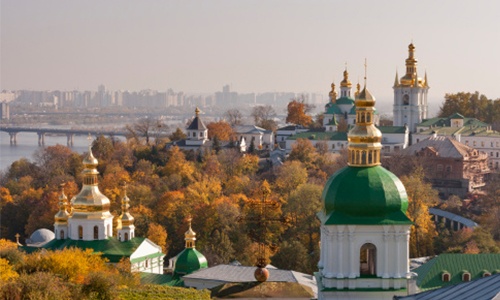
Kiev, Ukraine
As with most capital cities, Kiev is a major administrative, cultural and scientific centre of the country. It is the largest city in Ukraine in terms of both population and area and enjoys the highest levels of business activity. There are around 238,000 business entities registered in Kiev. Official figures show that Kiev’s economy outstripped the rest of the country’s, growing by an annual average of 11.5%. Kiev is a middle-income city, with prices currently comparable to many mid-size American cities. Kiev is the undisputed center of business and commerce of Ukraine and home to the country’s largest companies, such as Naftogaz Ukrainy, Energorynok and Kyivstar. The city accounts for 18% of national retail sales and 24% of all construction activity.
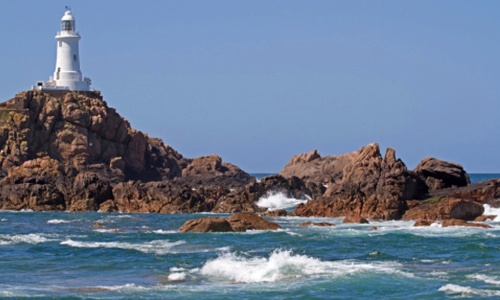
Jersey, Channel Islands
Jersey’s economy is based on financial services (43% of GVA), tourism (hotels, restaurants and bars making 3% of GVA), e-commerce, and agriculture (2% of GVA). The island is recognized as one of the leading offshore financial centres. Employment can be broken down as follows: 24% in financial and legal services; 16% in wholesale and retail trades; 16% in the public sector; 10% in education, health and other private sector services; 10% in construction and quarrying; 9% in hotels, restaurants and bars. Jersey is ranked as a tax haven by many organizations, the Financial Secrecy Index ranks Jersey as the 9th safest tax haven in the world, ahead of Japan but behind Germany.
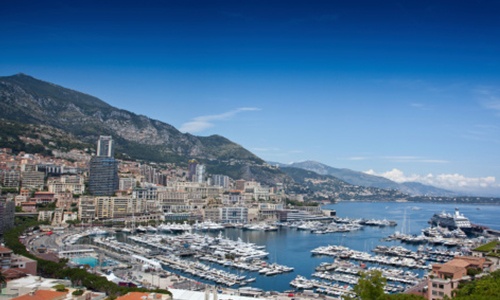
Monte Carlo, Monaco
Monaco boasts the world’s highest GNI per capita at $183,150. It also has the lowest unemployment rate at 0%, with over 48,000 workers who commute from France and Italy each day. According to the CIA World Factbook, Monaco has the world’s lowest poverty rate and the highest number of millionaires and billionaires per capita in the world. Monaco has the world’s most expensive real estate market, at $58,300 per square metre. One of Monaco’s main sources of income is tourism. Each year many foreigners are attracted to its casino and pleasant climate. It has also become a major banking center, holding over €100 billion worth of funds. The principality has successfully sought to diversify its economic base into services and small, high-value-added, non-polluting industries, such as cosmetics and biothermics. Monaco is not a member of the European Union. However, it is very closely linked via a customs union with France and, as such, its currency is the same as that of France, the euro. Monaco levies no income tax on individuals. The absence of a personal income tax in the principality has attracted to it a considerable number of wealthy residents from European countries who derive the majority of their income from activity outside Monaco; celebrities such as Formula One drivers attract most of the attention, but the vast majority of them are less well-known business people.

Luxembourg
Luxembourg’s stable and high-income market economy features moderate growth, low inflation, and a high level of innovation. Luxembourg is the second richest country in the world, with a per capita GDP on a purchasing-power parity (PPP) basis of $80,119. Luxembourg is ranked 13th in the Heritage Foundation’s Index of Economic Freedom, 24th in the United Nations Human Development Index, and 4th in the Economist Intelligence Unit’s quality of life index. The industrial sector, which was dominated by steel, has since diversified to include chemicals, rubber, and other products. Growth in the financial sector has more than compensated for the decline in steel production. Services, especially banking and finance, account for the majority of economic output. Luxembourg is the world’s second largest investment fund centre (after the United States), the most important private banking centre in the Euro zone and Europe’s leading centre for reinsurance companies. Moreover, the Luxembourg government has aimed to attract internet start-ups, with Skype and Amazon being two of the many internet companies that have shifted their regional headquarters to Luxembourg.
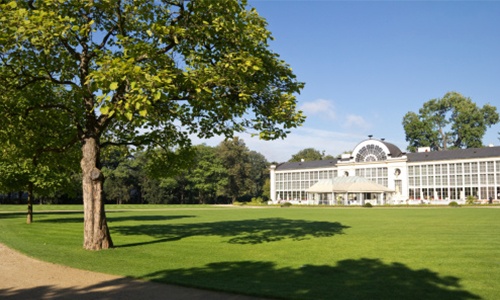
Warsaw, Poland
Warsaw, especially its city centre (Sródmiescie), is home not only to many national institutions and government agencies, but also to many domestic and international companies. Warsaw’s ever-growing business community has been noticed globally, regionally, and nationally. MasterCard Emerging Market Index has noted Warsaw’s economic strength and commercial center. Moreover, Warsaw was ranked as the 7th greatest emerging market. Warsaw leads the region of Central Europe in foreign investment . It also has one of the fastest growing economies, with GDP growth at 6.5 percent. The number of state-owned enterprises continues to decrease while the number of companies operating with foreign capital is on the rise, reflecting the continued shift towards a modern market-based economy. The largest foreign investors are Coca-Cola Amatil and Metro AG. Warsaw has the biggest concentration of electronics and high-tech industry in Poland, while the growing consumer market perfectly fosters the development of the food-processing industry

Athens, Greece
Athens is the financial capital of Greece, and multinational companies such as Ericsson, Siemens, Motorola and Coca-Cola have their regional research and development headquarters there. The total contribution for the economy of Athens has been distributed among the three main sectors, services, industries and agriculture. These three sectors contribute fairly in enhancing the economy of the city. The government of Greece is the major source of employment for the people living in Athens and Greece. From the 19th century, tourism and shipping became the main assets for Athens. The city became famous for its ancient monuments and rich history. The cruise ship industry is headquartered in Athens and Greece has got the biggest flotilla of commercial vessels in Europe. Piraeus and Athens are the main centers for the import and export of Greek goods and foreign items. Manufacturing sector also lends a helping hand in improving the economy of Athens. The city serves as a headquarter for Chemicals, petrochemical products, machinery, transport equipment, glassware, cement textiles, soap, food, flour, soft drinks, alcoholic beverages, pottery, leather goods and paper products industries along with the printing and publishing industries. Furthermore, the city has got a large number of well-established technology and research centers in addition to the good educational institutions.

Istanbul, Turkey
Istanbul is ranked 29th among the world’s urban areas. Istanbul’s economy has been one of the fastest growing among OECD metro-regions. According to Foreign Policy and the McKinsey Global Institute, Istanbul will register the 14th-highest absolute GDP growth among world cities by 2025. Istanbul is responsible for 27 percent of Turkey’s GDP, with 20 percent of the country’s industrial labor force residing in the city. Its GDP per capita and productivity are greater than their national averages by 70 percent and 50 percent, respectively, owing in part to the focus on high-value-added activities. With its high population and significant contribution to the Turkish economy, Istanbul is responsible for two-fifths of the nation’s tax revenue. That includes the taxes of thirty-seven billionaires based in Istanbul, the fifth-highest number among cities around the world. Istanbul is home to Borsa Istanbul, the sole exchange entity of Turkey, which combined the former Istanbul Stock Exchange, the Istanbul Gold Exchange, and the Derivatives Exchange of Turkey. As the only sea route between the oil-rich Black Sea and the Mediterranean, the Bosphorus is one of the busiest waterways in the world; more than 200 million tonnes of oil pass through the strait each year, and the traffic on the Bosphorus is three times that on the Suez Canal. Istanbul is an increasingly popular tourist destination; it the world’s fifth most-visited city.
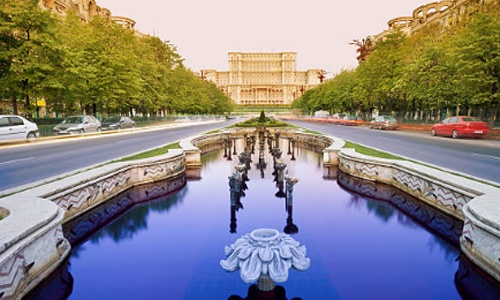
Bucharest, Romania
Bucharest is the centre of the Romanian economy and industry, accounting for around 22.7% of the country’s GDP and about one-quarter of its industrial production, while being inhabited by 9% of the country’s population. Almost one third of national taxes are paid by Bucharest’s citizens and companies. Bucharest’s economy is centered on industry and services, with services particularly growing in importance in the last ten years. The headquarters of 186,000 firms, including nearly all large Romanian companies are located in Bucharest. An important source of growth has been the city’s rapidly expanding property and construction sector. Bucharest is also Romania’s largest centre for information technology and communications and is home to several software companies operating offshore delivery centres. Romania’s largest stock exchange, the Bucharest Stock Exchange, which was merged with the Bucharest-based electronic stock exchange Rasdaq, plays a major role in the city’s economy.

Budapest, Hungary
Budapest is a global city and primate city of Hungary regarding the economy and business also, accounts for nearly 40% of the national income. Budapest is one of the largest regional economies in the European Union. According to the Eurostat GDP per capita in purchasing power parity is 147% of the EU average in Budapest. Budapest is among the 100 largest GDP performing cities in the world and was named as the 52nd most important business center in the world in the MasterCard Worldwide Centres of Commerce Index, ahead of Beijing, Sao Paulo, Warsaw or Athens. The city is 48th on the UBS The most expensive and richest cities in the world list, stands before cities such as Prague, Shanghai, Warsaw or Buenos Aires. The city is a major center for banking and finance, retailing, trade, transportation, tourism, real estate, new media as well as traditional media, advertising, legal services, accountancy, insurance, theater, fashion, and the arts in Hungary and regionally. Budapest is home not only to almost all national institutions and government agencies, but also to many domestic and international companies.
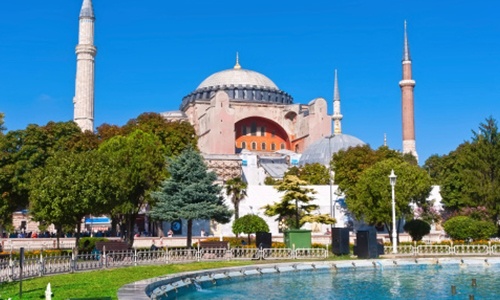
Sofia, Bulgaria
Sofia is the economic heart of Bulgaria and home to most major Bulgarian and international companies operating in the country, as well as the Bulgarian National Bank and the Bulgarian Stock Exchange. The city and its surrounding Yugozapaden NUTS II planning region is the most developed region in the country. Increasingly, Sofia is becoming an outsourcing destination for multinational companies, among them IBM, Hewlett-Packard, SAP, Siemens, Software AG. Bulgaria Air, PPD, the national airline of Bulgaria, has its head office on the grounds of Sofia Airport. The city has now attracted a cumulative total of $11,6 billion in foreign direct investment.

Venice, Italy
Venice is one of the most important tourist destinations in the world for its celebrated art and architecture. The city has an average of 50,000 tourists a day. It is the world’s 28th most internationally visited city, and is regarded as one of the world’s most beautiful cities. Today, there are numerous attractions in Venice, such as St Mark’s Basilica, the Grand Canal, and the Piazza San Marco. The Lido di Venezia is also a popular international luxury destination, attracting thousands of actors, critics, celebrities, and mainly people in the cinematic industry. The city also relies heavily on the cruise business. However, Venice’s popularity as a major worldwide tourist destination has caused several problems, including the fact that the city can be very overcrowded at some points of the year. It is regarded by some as a tourist trap, and by others as a”living museum”. Unlike most other places in Western Europe, and the world, Venice has become widely known for its element of elegant decay. The competition for foreigners to buy homes in Venice has made prices rise so high that numerous inhabitants are forced to move to more affordable areas of Veneto and Italy, the most notable being Mestre.





